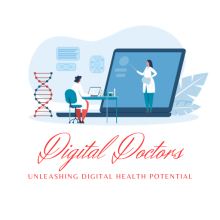Inspirational journeys
Follow the stories of academics and their research expeditions
Breaking into Remote Bioinformatics & Medical Research Careers: A Comprehensive Guide

Introduction
The medical and healthcare industry has increasingly embraced remote work, particularly in bioinformatics and medical research. These fields offer exciting opportunities for professionals looking to make an impact from anywhere in the world. This guide will cover the skills, qualifications, certifications, job platforms, and strategies needed to launch a remote career in bioinformatics and medical research.
1. Understanding Remote Bioinformatics & Medical Research Careers
What is Bioinformatics?
Bioinformatics is the application of computational and statistical techniques to analyze biological data. It plays a crucial role in genomics, drug discovery, and personalized medicine.
What is Medical Research?
Medical research involves studying diseases, treatments, and healthcare methodologies to improve medical knowledge and patient outcomes. Remote roles in this field range from clinical trial management to epidemiology and health informatics.
2. Remote Job Roles in Bioinformatics & Medical Research
Bioinformatics Roles:
- Bioinformatics Analyst – Processes and interprets biological data using software tools.
- Computational Biologist – Develops algorithms and models to analyze biological systems.
- Genomics Data Scientist – Analyzes DNA/RNA sequencing data.
- Machine Learning Engineer for Bioinformatics – Applies AI to biological datasets.
- Clinical Bioinformatics Specialist – Uses data to assist in disease diagnostics and treatment.
Medical Research Roles:
- Clinical Research Associate (CRA) – Monitors clinical trials and ensures compliance.
- Medical Writer – Creates research documents, regulatory submissions, and scientific content.
- Epidemiologist – Studies disease patterns and public health issues.
- Biostatistician – Analyzes medical data for research projects.
- Regulatory Affairs Specialist – Ensures compliance with healthcare regulations.
3. Skills Required for Remote Bioinformatics & Medical Research Jobs
Technical Skills:
- Programming languages: Python, R, Perl, SQL
- Bioinformatics tools: BLAST, GATK, Bioconductor, TensorFlow
- Data analysis and machine learning techniques
- Knowledge of medical databases and statistical modeling
Soft Skills:
- Strong analytical and problem-solving abilities
- Attention to detail
- Effective communication and technical writing
- Project management and time management
4. Licenses, Certifications & Qualifications
Degree Requirements:
- A bachelor's degree in bioinformatics, computational biology, life sciences, or a related field.
- A master’s or Ph.D. for advanced research roles.
Recommended Certifications & Where to Get Them Online:
-
Certified Clinical Research Professional (CCRP) – SoCRA
- Website: https://www.socra.org
-
Bioinformatics Specialization – Johns Hopkins University (Coursera)
-
Certified Biostatistician – American Statistical Association (ASA)
- Website: https://www.amstat.org
-
Genomic Data Science Specialization – Johns Hopkins University (Coursera)
-
Introduction to Clinical Data Science – University of Pennsylvania (Coursera)
5. Where to Find Remote Bioinformatics & Medical Research Jobs
Job Boards & Agencies:
- FlexJobs – https://www.flexjobs.com
- LinkedIn Jobs – https://www.linkedin.com/jobs
- We Work Remotely – https://weworkremotely.com
- BioSpace – https://www.biospace.com/jobs/
- MedReps (Medical Sales & Research) – https://www.medreps.com
Companies & Platforms Actively Hiring:
- Illumina – Genomics and bioinformatics research.
- Thermo Fisher Scientific – Biotech and laboratory research.
- Parexel – Clinical research and regulatory affairs.
- IQVIA – Pharmaceutical and healthcare data analysis.
- Bristol-Myers Squibb – Biopharma research.
- 23andMe – Genetic research and data analysis.
6. Tips & Strategies to Land a Remote Bioinformatics or Medical Research Job
-
Build a Strong Online Presence:
- Maintain an updated LinkedIn profile.
- Showcase projects on GitHub (for bioinformatics roles).
- Publish scientific articles or blog posts.
-
Gain Experience Through Online Internships & Projects:
- Join Kaggle competitions related to bioinformatics.
- Contribute to open-source bioinformatics projects.
-
Network with Professionals:
- Engage in online forums like ResearchGate.
- Attend virtual conferences and webinars.
-
Tailor Your Resume for Remote Roles:
- Highlight experience with virtual collaboration tools (Slack, Zoom, GitHub, etc.).
- Emphasize independent project management skills.
-
Leverage Remote Work-Specific Job Platforms:
- Apply through remote work-specific job sites like Remote.co and Working Nomads.
7. Curated List of Online Resources for Further Learning
Educational Platforms:
- Coursera – https://www.coursera.org
- edX – https://www.edx.org
- Udemy – https://www.udemy.com
- FutureLearn – https://www.futurelearn.com
Professional Associations & Communities:
- International Society for Computational Biology (ISCB) – https://www.iscb.org
- Clinical Research Society (CRS) – https://www.clinicalresearchsociety.org
- ResearchGate – https://www.researchgate.net
Conclusion
Remote bioinformatics and medical research careers offer exciting opportunities for professionals worldwide. By developing the right skills, obtaining relevant certifications, and leveraging online job platforms, you can successfully break into this dynamic field. Stay proactive, keep learning, and take advantage of the many resources available to advance your career remotely.
Next Steps:
- Enroll in an online certification course.
- Update your resume and LinkedIn profile.
- Start applying for remote jobs today!
Tags:
Remote bioinformatics jobs medical research careers online certifications bioinformatics skills clinical research jobs work-from-home healthcare remote scientific jobs job boards biotechnology careers.0 Comments
Categories
- Career Development and Opportunities in Digital Health 166
- White Papers 39
- IELTS For Medical Professional 35
- OET Exam Preparation 30
- Entrepreneurship and Innovation 26
- Healthcare Innovation 17





Leave a comment